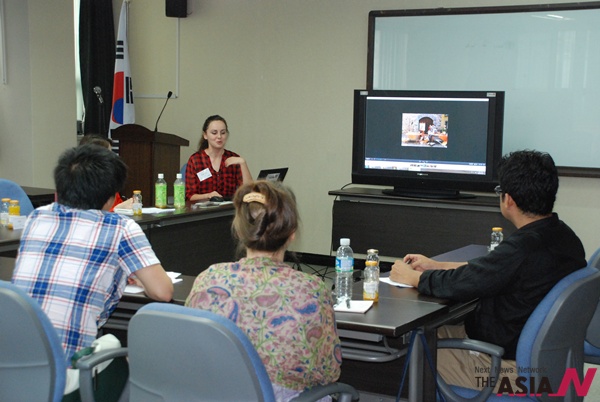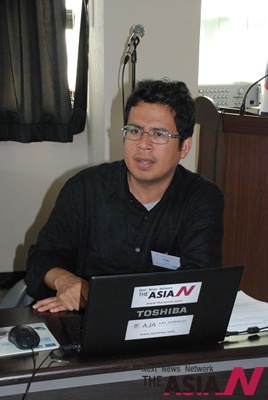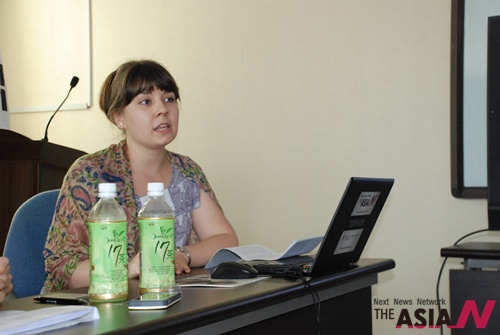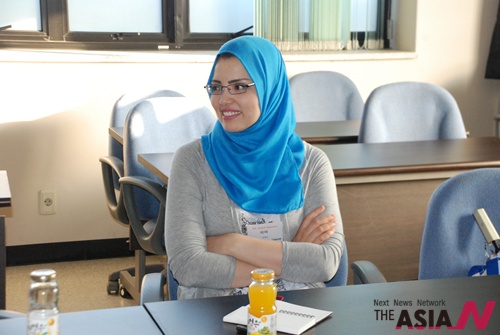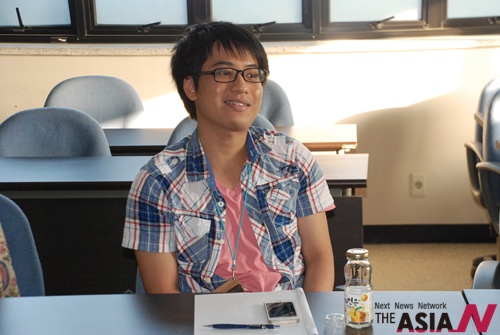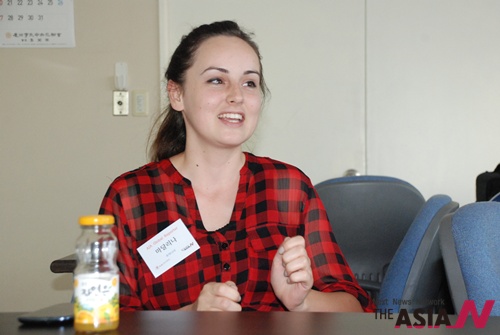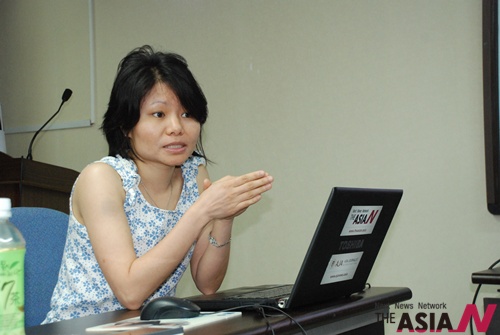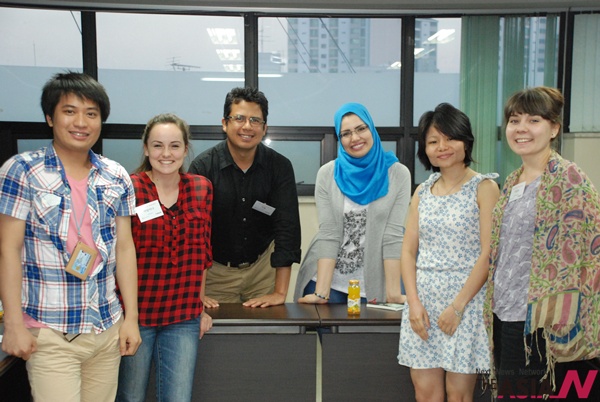[AJA TALK] Summer Festivals around the World
There is a great advantage being a global reporter, that is meeting people from all over the globe and understanding more about their cultures. The amount of information one accumulates when interacting with people outside their national boundaries is tremendous and AJA TALK creates the perfect opportunity for this.
The first AJA TALK this year was held on the 4th of July and its topic was Summer Festivals. The participants, 6 students from Algeria, Mexico, Nepal, Romania, Uzbekistan and Vietnam, shared the beauty of their national summer festivals and learned about the each other’s culture.
Mexico: Huamantla Fair
The discussion was opened by the representative from Mexico, Saul Serna Segura, who talked about Huamantla Fair. This festival is in honor of the Virgen de la Caridad (Virgin of Charity) and it lasts for almost the entire month of August. The main attraction of the festival is the flower carpets, made by the local artisans and the town’s inhabitants who work together to create the most beautiful and original flower carpets that cover the streets over 10 kilometers (6 miles), leading to the city’s main Church where mass is held to celebrate their faith and love to the Virgin. Another major point of the festival is the Huamantlada, a traditional running of the bulls similar to the one in Pamplona, Spain. Traditional attractions, concerts, art and cattle exhibitions and even rooster fights can be enjoyed during the days of the festival.
Uzbekistan: Sharq Taronalari International Music Festival
Uzbek student, Kamila Yuldasheva presented the Sharq Taronalari International Music Festival. This festival raised interests not only in Asia, but in only a few years it attracted participants from all over the world. Sharq Taronalari takes place in August every two years since 1997, when it was initiated by the Uzbek president Islam Karimov. The main objectives of the festival are to popularize widely the achievements of the national music art, to promote the musical heritage of different nations, to preserve and develop great musical traditions of the people and to strengthen cultural cooperation. Apart from the musical performances, visitors and guests have the possibility to enjoy various exhibitions of national Uzbek costumes, traditional musical instruments, art-bazaar, concerts, national Uzbek food and sightseeing of Samarkand.
Algeria: Historical Festivals
Ouafa Bakhoche, from Algeria, talked about how their summer festivals are influenced by the very diverse Algerian culture. Most of the festivals celebrate music, culture, crafts and food, and are held in historical sites such as roman theatres. During the festivals, participants can enjoy traditional costumes, crafts or jewelry exhibitions as well as delicious traditional food provided by the local restaurants. Also tourists have the chance to discover the Algerian desert by taking pictures with camels, fennecs or buying souvenirs made with sand and enjoy the free desert tea.
Vietnam: Spiritual Festivals
Vu Thanh Cong talked about the different festivals held during the summer in Vietnam. The most important one is Tet Doan Ngo, The Summer Solstice (fifth day of the fifth moon), marked by festivities aimed at warding off epidemics brought on by the summer heat. Trang Nguyen (or Vu Lan) The Day of Wandering Souls is the second most important festival after Tet. Offerings of food and clothes are made to comfort and nourish the unfortunate souls without a home while graves are being cleaned. This is also the time for the forgiveness of faults, when the King of Hell judges everyone’s spirits and metes out reward or punishment as appropriate. Most festivals are Chinese in origin, therefore they take place according to the lunar calendar, but minority groups also hold their own specific celebrations. Despite the ups and downs of history and influence by foreign cultures, the festivals still keep their unique features.
Romania: Medieval Festivals
Medieval Festivals held during the summer in Romania, were presented by Madalina Barta. This festivals are held all over the country, in cities with rich historical heritage, lasting for three or four days. Most of the festivals celebrate the city’s anniversary by appealing to its history. Visitors have the chance to experience glimpses of the old times by watching knight fights, enjoying traditional food and costumes, buying art and crafts and assist different performances. The streets are full with fairs, music and food tents, where people enjoy the traditional ‘mici’, which are grilled mix meat served with mustard and bread. Tourists can win different prizes raffling, enter medieval sports competition, experience traditional handicraft or try on medieval costumes.
Nepal: Teej Festival
Sara Rai talked about Teej Festival, a celebration of Nepalese women. The festival lasts 4 days and it usually falls between mid and late August. During these days, married women return to their mothers’ houses to spend time together and celebrate. They cook, they chat and they prepare for fasting. On the second day, the women fast to appease the lord Shiva and sing and dance in groups, worshiping Shiva and asking for blessings for the wellbeing and long life for their husbands. Married women dress up in red sari, put on pote ( tiny glass bead necklaces), and ornaments, while the few single women who take part to the event dress in other colours. The fast is broken on the morning of the third day, when the participants purify themselves and the festival ends.
The cultural diversity present in this meeting made AJA TALK very pleasant and enjoyable. Questions were asked throughout the entire session, showing the participants’ interest for a deeper understanding of one’s culture. We are all looking forward to discovering more about our countries.
By Madalina Barta, Romania, AJA Global Reporter





















